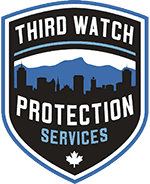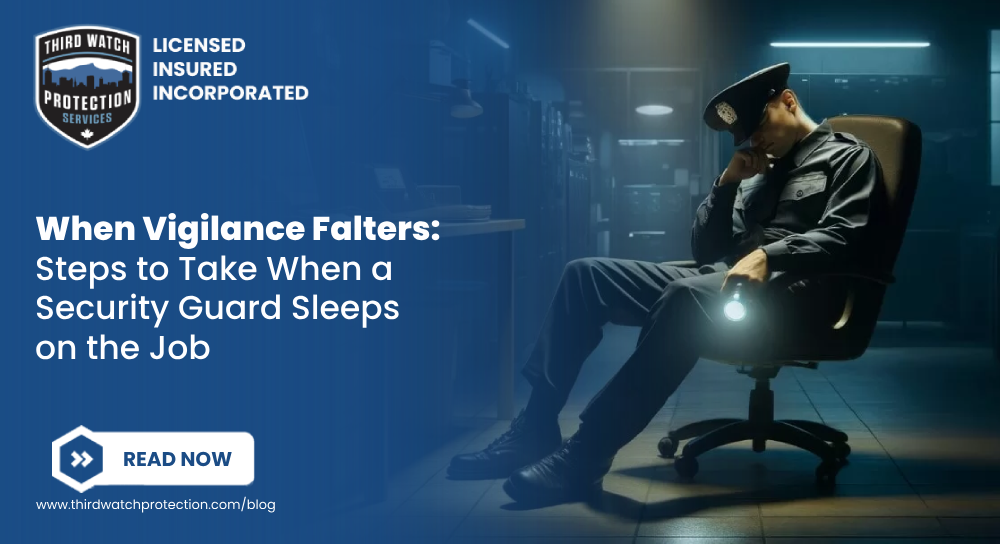When Vigilance Falters: Steps to Take When a Security Guard Sleeps on the Job
In a world where security is paramount, the sight of a slumbering security guard can send shivers down the spine of business owners and patrons alike. Security personnel are often the first line of defense against potential threats, and their vigilance is critical to safety. However, lapses in attention—such as dozing on the job—can lead to serious repercussions. In this blog post, we’ll explore the reasons why these situations may occur, the potential consequences, and the steps you can take if you find yourself facing this issue.
Understanding the Root Causes
Before diving into the steps to take when a security guard sleeps on the job, it is essential to understand why this might occur.
1. Fatigue and Long Hours: Guarding premises can be exhausting, especially for those who work extended shifts or late-night hours. Fatigue can easily set in, leading to decreased alertness and even unintentional naps.
2. Monotony of the Job: Security work can often be monotonous, particularly in low-crime areas or during off-peak hours. This boredom can contribute to a guard’s inability to stay awake and alert.
3. Insufficient Training: Sometimes, guards may not have received adequate training regarding the importance of vigilance and how to manage fatigue. A lack of understanding of their responsibilities can lead to lapses in performance.
4. Health Issues: Generally, it is also possible that a guard may be struggling with health issues or sleep disorders, leading to excessive fatigue during their shift.
5. Unrealistic Expectations: Employers may sometimes place unrealistic expectations on guards, demanding long hours or multitasking that stretches their limits.
Recognizing the Signs
Recognizing when a security guard is losing focus is essential for quickly addressing the situation. Here are some signs to look for:
- Head Nodding or Slumped Posture: If you observe a guard frequently nodding off or leaning uncomfortably, it’s a clear indicator of fatigue.
- Lack of Interaction: A guard who is not engaging with visitors or monitoring the surroundings may be losing attention.
- Sound Sleep: If a guard is fully asleep—snoring, eyes closed, with an absence of alertness—immediate action is required.
Steps to Take
If you find yourself in a situation where a security guard is sleeping on the job, it is crucial to address the issue promptly and appropriately. Here are the steps you should consider:
Step 1: Assess the Situation: Before taking action, take a moment to assess the situation. Ensure that there are no immediate security threats. If the area is safe, you’ll be better equipped to handle the matter without panic.
Step 2: Document Evidence: Documentation is important. Make note of the date, time, and circumstances of the incident. If possible, take discreet photographs or videos. Having evidence can help you discuss the issue with management or the security company later on.
Step 3: Wake the Guard, If Necessary: If you believe that the guard’s sleep could pose an immediate risk to safety, it may be appropriate to rouse them gently. Depending on the context, you can approach the guard quietly and say something like, “Excuse me, are you okay?” Make sure to be respectful; their response could reveal whether they were truly asleep or simply resting their eyes.
Step 4: Report the Incident: After handling the immediate situation, report the incident to the guard’s supervisor or the security company. Provide them with your documented evidence and explain the situation clearly. It’s important for them to know that this kind of lapse occurred.
Step 5: Evaluate Security Protocol: Discussing the matter with management might prompt a review of the existing security protocols in place. Look for ways to improve vigilance, such as:
- Implementing Rotations: Shortening shifts or rotating guards could help reduce fatigue.
- Regular Training: Training sessions can reinforce the importance of vigilance and refresh guards on how to stay alert.
- Health Checks: Consider monthly meetings focused on mental and physical health to encourage guards to speak openly about any issues.
Step 6: Consider Alternatives: If the same incident continues to occur with the same security guard, it may be necessary to consider alternatives. You could suggest replacing that guard or advocating for changes in the scheduling process to ensure that shifts are more manageable.
Step 7: Foster a Culture of Accountability: Encourage open communication and accountability among guards. Create a workplace culture where security personnel feel responsible for each other’s performance. Emphasizing the importance of teamwork can motivate guards to stay vigilant.
The Broader Impact
A single incident of a security guard sleeping on the job can have far-reaching consequences beyond the immediate situation. It can affect the company’s reputation, undermine customer trust, and even lead to legal ramifications if a security breach occurs as a result. Therefore, taking this issue seriously and acting promptly is crucial.
In Conclusion
When vigilance falters, it is essential to recognize the signs, act with care and responsibility, and take steps to prevent future incidents. Understanding the underlying causes of such lapses can help organizations create a more conducive work environment, ensuring that security personnel remain alert and effective. After all, a vigilant security guard is not just an employee; they are guardians of safety and peace. By addressing the matter proactively, you can help maintain a secure environment for everyone involved.
If you’re considering switching security providers, we’re here to assist you in creating a seamless transition process that guarantees your building’s security at all times. Reach out to us today at 1-888-444-5232 or email us at mail@thirdwatchprotection.com. Let us help safeguard your business and condominium! Your peace of mind is our priority, and we’re ready to ensure a smooth changeover.



